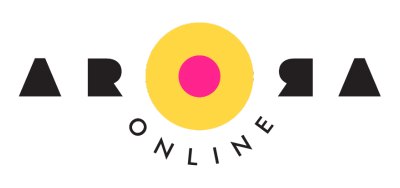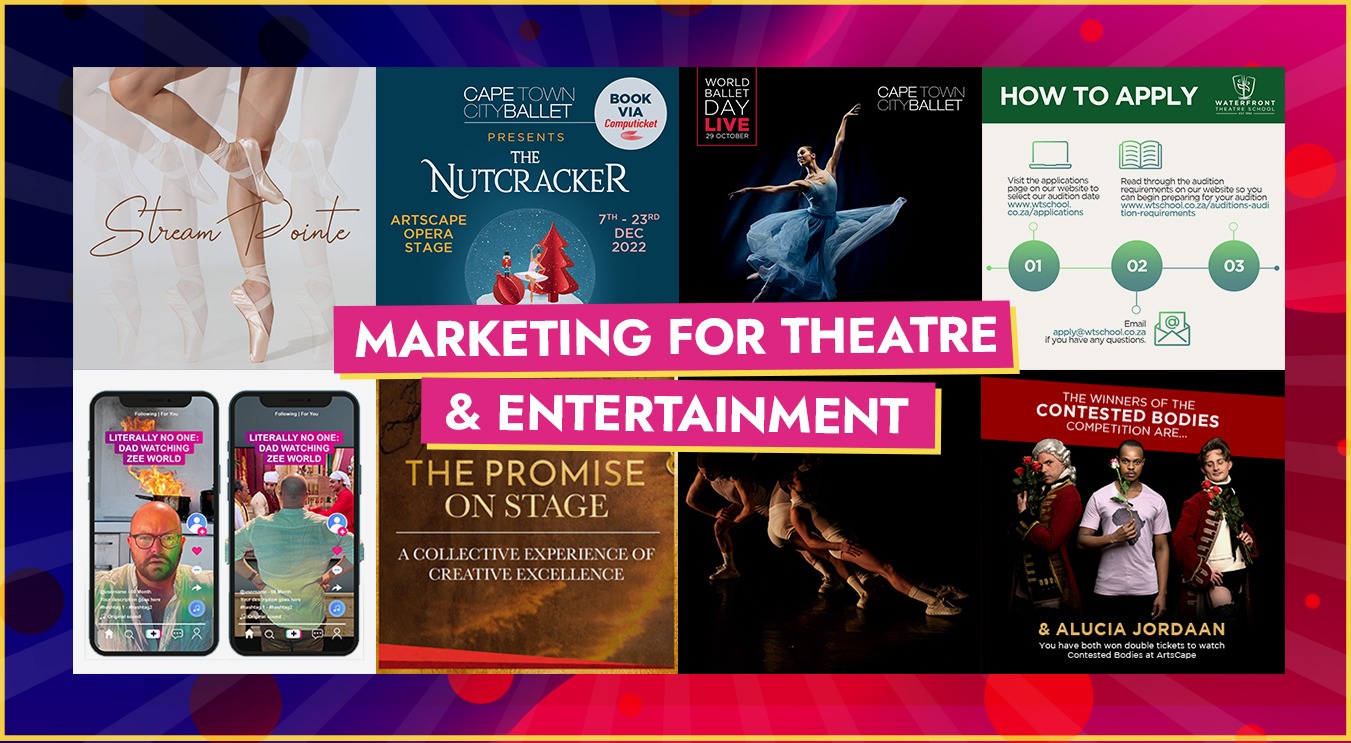In a global landscape brimming with diverse entertainment options, the theatre and entertainment industry grapples with intense competition. The success of theatres and entertainment events relies heavily on the significant role played by marketing strategies, which are not only greatly coveted but also undeniably critical in reaching the appropriate audience and fostering a loyal fan base.
Regardless of whether you’re overseeing a theatre, planning upcoming concerts, or managing any other type of entertainment event, creating a well-structured marketing plan is fundamental to achieving your goals in the realm of entertainment marketing and theatre promotion. In the ever-evolving landscape of entertainment industry trends and theatre marketing success, it’s essential to recognise that these endeavours are dynamic.
Therefore, this multifaceted domain demands innovative event marketing strategies and an integrated marketing approach to truly engage audiences, boost ticket sales, and attain a remarkable return on investment (ROI).
Arora Online’s Commitment to Entertainment Marketing
So what fuels Arora Online’s strong commitment to the theatre and entertainment marketing sector? It all begins with the founder and co-owner, Steven van Wyk, who brings over two decades of experience in the theatre industry. Having worked as a performer, choreographer, and co-owner of the highly acclaimed Underground Dance Theatre, Steven’s deep-rooted passion for theatre has become an integral part of Arora Online’s identity.
Over the years, the company has proudly served clients like Cape Town City Ballet, Zee World, Abrahamse & Meyer Productions, The Waterfront Theatre School, and The College of Magic, among others. Our pride stems from our expertise in the niche of theatre marketing, and we are dedicated to ensuring that theatre productions and events gain the recognition that they rightfully deserve.
With this in mind, let’s embark on a journey into the realm of digital marketing for entertainment, and explore the important role that developing a marketing plan plays in this industry, particularly in terms of theatre advertising, concert promotion, entertainment industry trends and integrated marketing approaches for the best outcomes.
We’ll delve into a comprehensive guide to the most effective marketing strategies for theatres and entertainment events, exploring a range of topics from digital marketing to sustainable event marketing.
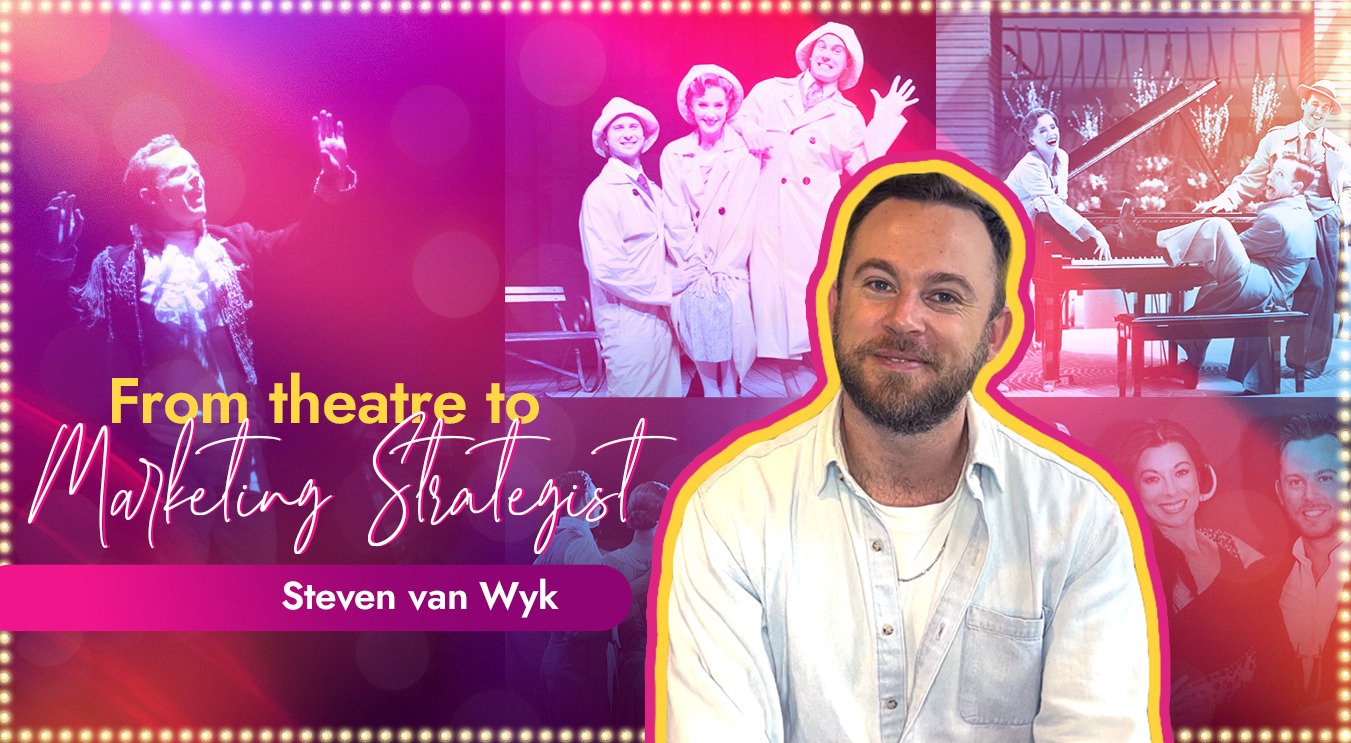
Why Marketing Matters for Theatres & Entertainment Events
When it comes to entertainment marketing, a sustainable event marketing strategy is crucial due to the industry’s ever-changing nature. This strategy is vital not only for reaching the correct audience, cultivating a loyal fan following, and optimising ticket sales, but also for securing theatre marketing success and the profitability of these events in a highly competitive industry. Effective marketing strategies play a fundamental role in promoting concerts, creating anticipation, and generating interest in entertainment offerings. Let’s delve deeper into why marketing holds significant importance in the entertainment industry.
- Understanding the Competitive Nature of the Entertainment Industry
The theatre and entertainment industry exists within a highly competitive landscape, where every show and event battles for the precious attention and disposable income of potential attendees. In this environment, characterised by a multitude of entertainment choices, it becomes essential to establish an integrated marketing approach. Such a strategy is indispensable to ensure that your event not only thrives but also distinguishes itself from the extensive array of alternatives available to the public. It’s the key to making your event stand out amongst the crowd, attracting the right audience, and achieving theatre marketing success.
Imagine you’re in charge of a local theatre, and you’re preparing to stage a remarkable musical production. However, there are several other entertainment options available to your potential audience. Without a well-thought-out event marketing strategy, your musical may get lost in the shuffle, and your potential attendees may not even be aware of the fantastic show you’ve put together. Here’s where an integrated marketing strategy takes centre stage. Through a combination of online theatre advertising, social media promotions, content marketing, influencer marketing in the entertainment industry, and possibly even email campaigns, you can efficiently boost audience engagement.
- The Impact of Technology and Changing Consumer Behaviour
In this era of rapid digital transformation, technology has completely reshaped the avenues through which individuals access and interact with entertainment. The rise of streaming platforms, the omnipresence of social media, and the ease of online ticket sales have significantly transformed how audiences explore, book, and interact with events. As consumer behaviour continues to evolve in response to these technological advancements, digital marketing approaches must adapt to remain effective in reaching the intended audience and securing a favourable event marketing ROI.
The digital era has brought about an age of unparalleled ease and accessibility for fans of performing arts, theatre, and entertainment. Whether it’s the ease of binge-watching a series on a streaming platform, engaging with artists and performers on social media, or effortlessly booking tickets online, the entertainment industry has become intricately woven into the digital fabric of our lives. Therefore, traditional marketing methods must adapt and harness these digital tools to connect with the ever-changing preferences and habits of consumers.
- The Importance of Attracting and Retaining a Loyal Audience
Sustainable event marketing transcends the immediate goal of merely filling seats or selling tickets for a single event. It involves the art of cultivating a devoted and actively engaged audience, one that not only attends your current show but becomes a recurring presence, eager for future offerings. Through the implementation of sustainable event marketing strategies, you have the opportunity to establish a vibrant community of supporters who serve as the foundation for your long-term triumph. This loyal and committed fan base is the secret to not only achieving your immediate objectives but also ensuring your enduring success in the ever-evolving world of entertainment.
Imagine you’re running a comedy club, and your immediate goal is to sell tickets for a special stand-up comedy show. Instead of focusing solely on ticket sales for this one event, you decide to take a more sustainable and integrated approach to entertainment marketing. You create a loyalty program and meet-and-greet opportunities with comedians, and you also maintain an active presence on social media, engaging with your audience regularly and sharing behind-the-scenes content. As a result, you don’t just fill seats for the current show; you start building a community of devoted comedy fans. They keep coming back for more, and their word-of-mouth recommendations attract new members. It’s a win-win!
- The Role of Marketing in Achieving Financial Sustainability
Financial sustainability in the realm of theatres and entertainment events often involves a delicate balancing act. These endeavours rely on a multifaceted revenue generation model, wherein marketing emerges as a pivotal player, which is part of the reason why the role of entertainment marketing in this context is super important. Its influence extends beyond simply promoting the event; instead, a solid event marketing strategy emerges as the cornerstone in securing the financial resources necessary to not only sustain the immediate production but also ensure the prosperity and sustainability of the overall business.
To delve into this, think of a large-scale theatre production. While ticket sales represent a significant portion of the income, they are often insufficient to cover all the associated costs. This is where entertainment marketing enters from stage left. A well-developed marketing plan not only attracts a broader audience to boost ticket sales growth but also seeks out potential sponsors and collaborates with local businesses. These additional revenue streams collectively offer a more robust financial base. Therefore, sustainable event marketing’s ability to secure financial resources ensures that the show goes on, and the business can thrive even in the face of financial challenges.
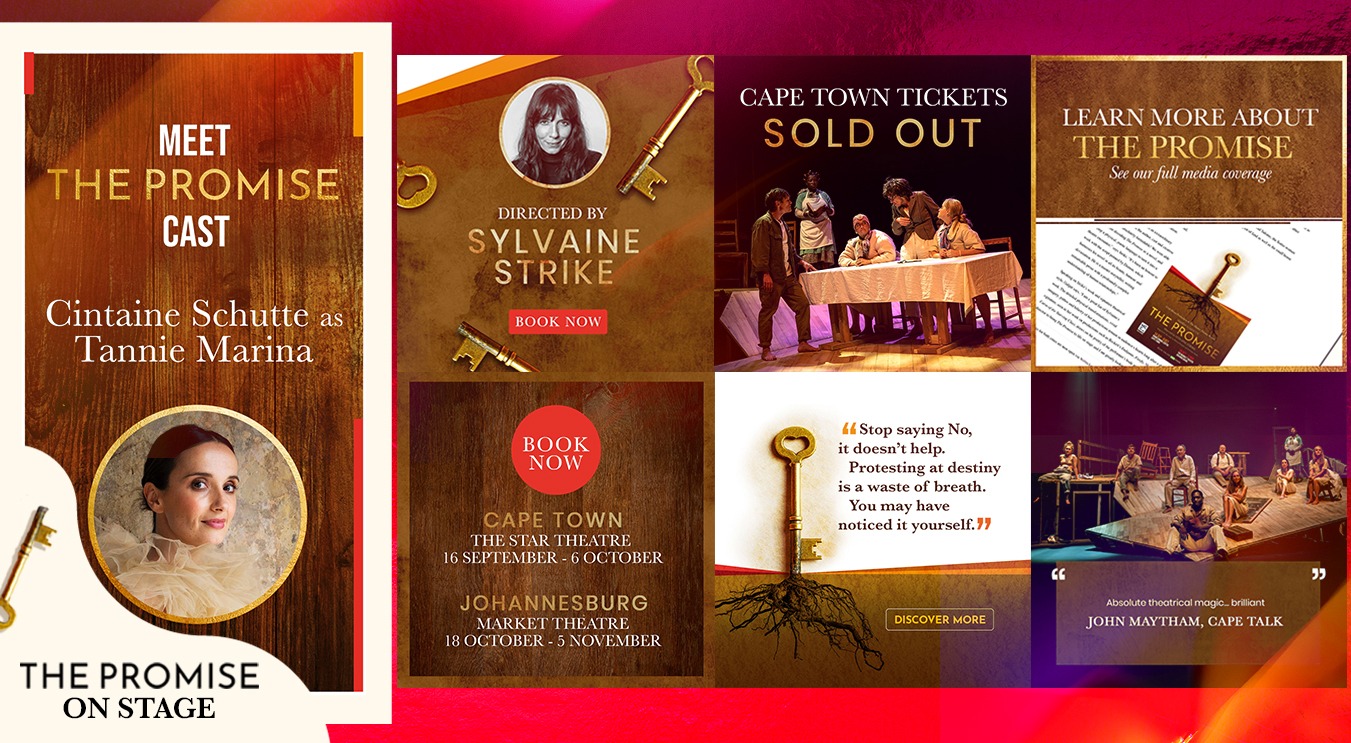
5 Types of Entertainment Marketing Strategies
Now that we understand the importance of digital marketing for entertainment, let’s delve into a comprehensive guide to the most effective entertainment marketing strategies for theatre promotions and events. We’ll explore a range of topics in between from digital marketing to sustainable event marketing, to ensure that you’re well-equipped to understand entertainment industry trends and the way in which an integrated marketing strategy can contribute to theatre marketing success and enhanced ticket sales growth.
- Online Marketing
Online marketing, otherwise known as digital marketing, involves a holistic approach to promoting products, services, or brands in the digital realm. It encompasses a wide range of tactics and channels, including websites, social media, emails, search engines, and online advertising. The core objective of online marketing is to engage and captivate a particular audience, nurture the generation of leads or sales, and foster the growth of brand recognition through the utilisation of digital tools and online platforms.
Online or digital marketing empowers theatre and entertainment businesses to harness the internet’s potential to establish connections with their target demographic, analyse data for more precise targeting, and dynamically adjust strategies to fulfil their event marketing objectives to achieve theatre marketing success. Here are a few ways in which digital marketing tactics can be implemented online:
- Website Optimisation: Your website functions as a virtual storefront, representing the face of your theatre or event in the digital landscape. Strategic optimisation of your website is similar to designing an enticing window display, intended to attract and captivate visitors. This multifaceted approach, encompassing Search Engine Optimisation (SEO) and the enhancement of user experience, not only elevates your online visibility but also plays a pivotal role in converting visitors into attendees.
For example, incorporating features like newsletter sign-ups, performance calendars with upcoming dates, and SEO-optimised blog posts can be instrumental in not only attracting new visitors to your website organically but also boosting audience engagement and ticket sales growth. These strategies work together to create a dynamic online presence that caters to your audience’s needs and expectations.
- Social Media Marketing: Interacting with your audience on social media is a powerful method for nurturing a dedicated fan base and marketing events. It allows you to pull back the curtain and offer your audience an exclusive peek behind the scenes, satisfying their craving for a deeper connection. This level of engagement is precisely what your social audience wants, particularly because theatre enthusiasts are just as interested in the journey of creating theatre as they are in the final show.
A recent example of the positive results stemming from social media for entertainment and a thoughtfully crafted event marketing strategy is the remarkable ticket sales growth observed for the stage adaptation of “The Promise” by Club Dezza Productions and Fortune Cookie Productions. Arora Online’s social media and event marketing strategy made a significant impact on event promotion and ticket sales.
- Email Marketing: Implementing targeted email marketing campaigns is an efficient approach to enhance audience engagement regarding upcoming shows and exclusive promotions. This cost-effective approach enables you to reach a broad audience while creating a sense of belonging. When attendees feel like they belong to a community, they are more likely to become loyal supporters. Sustainable event marketing aims to establish long-term relationships with attendees or customers.
For instance, by positioning email marketing as a part of an exclusive club, such as a membership program, subscribers can gain access to additional behind-the-scenes content, early ticket purchasing privileges, and exclusive perks, including potential opportunities to attend dress rehearsals. This turns newsletter sign-ups into a win-win scenario: subscribers receive rewards, and events get the promotions they need.
- Pay-per-click Advertising: Paid advertising on search engines and social media platforms serves as a valuable strategy in digital marketing for entertainment, providing instant exposure to those actively seeking entertainment options, ultimately leading to ticket sales growth. Take YouTube ads, for example; they can play an important role in unveiling the production’s visual charm and they can enable prospective attendees to get a sneak peek into what the production includes, such as the intricate sets, striking costumes, and meticulous lighting. These ads cultivate an immersive experience that sparks curiosity and captivates the audience.
Simultaneously, Google display ads can generate widespread awareness about the upcoming show. They effectively reach a diverse audience, ensuring that your event is firmly on their radar and that they are well-informed about this exciting opportunity. Together, these advertising methods work in harmony to elevate your event’s visibility and allure to potential attendees, as well as boost event marketing ROI.
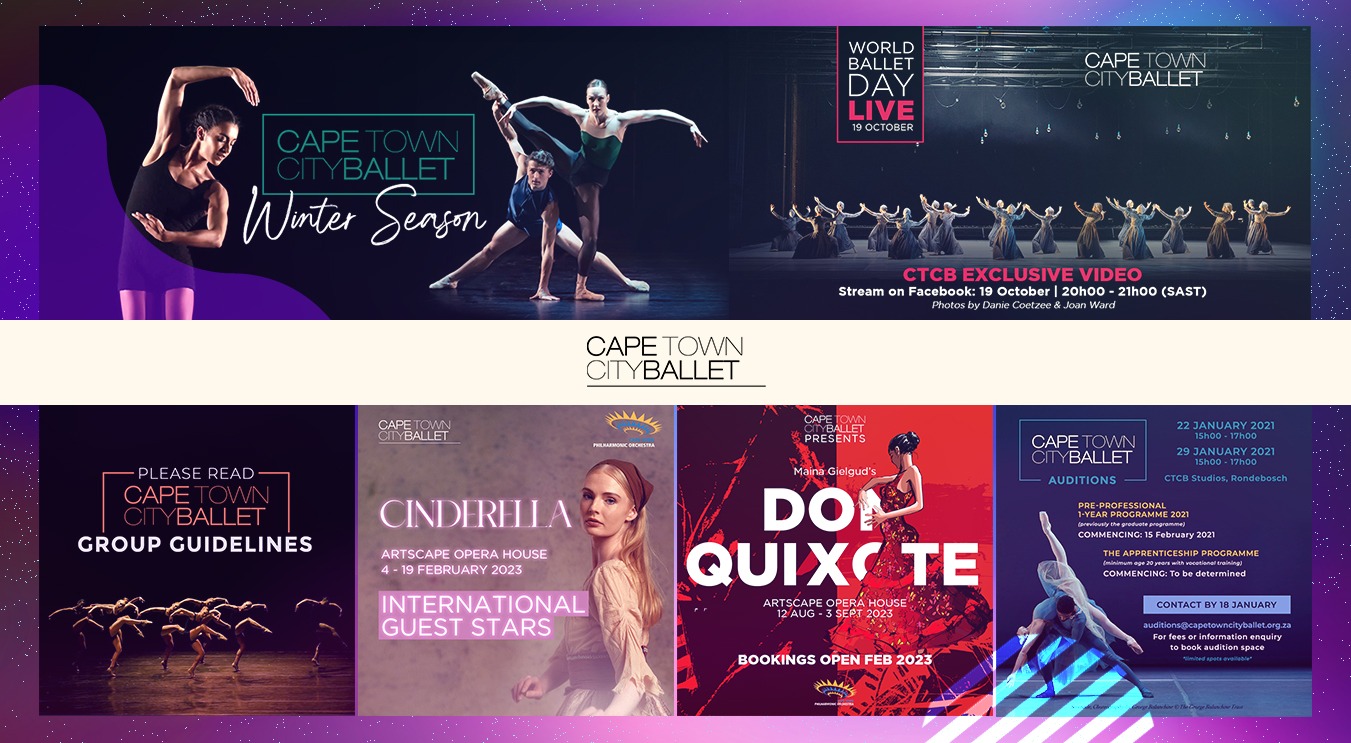
- Content Marketing
Content marketing is a strategic approach that focuses on creating and distributing valuable, relevant, and consistent content to attract and engage a specific target audience. This content can take various forms, such as blog posts, videos, social media updates, infographics, and more. The primary goal of content marketing is to establish trust and credibility with the audience by providing information and solutions that address their needs and interests. It is not overtly promotional, but it does aim to educate, entertain, or inspire, ultimately driving profitable customer action.
Content marketing is a powerful tool for building brand awareness, establishing thought leadership, and nurturing customer relationships over the long term. It leverages the principle that informed and engaged customers are more likely to make informed purchasing decisions and become loyal advocates for a brand. Content marketing is also highly adaptable, which is great for keeping up with entertainment industry trends. Here are a few ways in which content marketing for entertainment can be implemented:
- Blogging: Blogging plays a vital role in digital marketing strategies. By consistently crafting blog content relevant to your industry or events, you not only establish your authority which is great for SEO but you also have the opportunity to draw organic traffic to your website. Blog posts can serve as an educational resource for your target audience, offering valuable insights, information, and solutions to their queries.
Another wonderful thing about blogging is that it allows you to stay current and engage with your audience. The steady stream of fresh content not only fosters trust and credibility but also provides an effective platform for showcasing your expertise. Over time, this valuable content can serve as a magnet for your website, pulling in a broader audience, and through the art of blogging, you can position your brand as an industry leader while providing a wealth of knowledge to your audience.
- Video Marketing: Video marketing is another dynamic and impactful approach to engaging your audience. Videos possess a unique ability to captivate viewers, making them not only engaging but also incredibly shareable, and the allure of video content lies in its capacity to deliver immersive experiences. This makes video content an excellent method of drawing back the curtain, offering sneak peeks into your production, behind-the-scenes footage, and theatre event highlights.
Through video marketing, you can invite your audience to take a journey with you. Shareable across various platforms, videos have the potential to go viral, extending your reach far beyond your immediate audience. They also create a lasting impression by conveying emotions and stories, allowing you to forge authentic connections with viewers. By offering a creative canvas for showcasing your brand’s personality and expertise, videos leave a memorable impact on your audience.
- Podcasts: Podcasts offer a unique and intimate way to establish connections with your audience. How do they do so? They offer a one-of-a-kind platform for you to engage, inform, and entertain your listeners in a highly personal manner. By leveraging the power of podcasts, you can create a space where you not only share insights and industry expertise but also conduct captivating interviews and delve into the latest in entertainment news and trends.
One of the key strengths of podcasts is their versatility, another valuable asset in adapting to constantly evolving entertainment industry trends. Podcasts can cater to a wide range of interests and niches, and as a content creator, podcasts give you the opportunity to craft your unique voice, delivering content that resonates with your audience on a deeper level. Through the art of podcasting, you can foster a sense of connection and trust that is often unmatched in the realm of digital marketing.
- Traditional Marketing
Traditional marketing refers to established methods and practices used for promoting products, services, or brands before the digital era. These techniques encompass various offline channels, including print media, such as newspapers and magazines, radio and television advertising, direct mail, and more. Traditional marketing in entertainment often relies on one-way communication, with theatre and production houses promoting their events to a broader audience without any direct interaction.
Traditional marketing methods are tangible and have a broad reach, making them great for targeting a wide range of demographics. However, they can be costly, and their impact is often challenging to measure compared to digital marketing. Nevertheless, traditional marketing remains valuable for theatre promotion, particularly when targeting specific demographics that prefer print media or respond well to radio and TV ads.
- Print Media: In the digital age, the role of traditional print media endures. Physical publications like newspapers and magazines continue to hold sway, particularly when aiming to connect with demographics that cherish tangible reading experiences. The appeal lies in the physical and lasting quality of print media, which caters to those who value the experience of holding a newspaper or perusing the glossy pages of a magazine. For theatrical organisations and production companies, print media advertising can be an effective way to engage with these audiences, sharing content and promotions that bridge the gap between the physical and digital worlds.
- Radio & TV Advertising: Radio and television advertising are enduring pillars of traditional marketing, with the capacity to reach extensive and varied viewership. Their enduring influence is especially valuable for promoting large-scale events that require broad visibility. Radio can establish a connection with listeners through catchy jingles or informative snippets whereas television, on the other hand, combines the power of sight and sound to tell compelling stories and showcase products or services. These channels continue to be significant in raising awareness and building anticipation for major theatre events and concert promotions, although their cost-effectiveness makes them more suitable for promoting large-scale events.
Pro Tip: It’s important to remember that radio and television platforms not only deliver the entertainment itself but also provide valuable opportunities for theatre enthusiasts to gain a better understanding of the intricate processes involved in its production. This is achieved through interviews, discussions, and features that bring the creative team and the cast to the forefront, allowing audiences to not only connect with the artistic journey but also appreciate the effort and creativity that go into making the entertainment they enjoy.
- Direct Mail: Direct mail campaigns, comprising postcards, brochures, and other physical materials, offer a targeted approach to reaching specific local audiences. In an age where digital inboxes are inundated with emails, direct mail provides a refreshing alternative. It places tangible promotional pieces directly in the hands of potential customers, making it more likely for the message to be noticed and remembered. However, while personalisation can add a nice touch, it isn’t always sustainable. This is because direct mail campaigns can be expensive and their outreach is often limited. Some recipients may also perceive direct mail as wasteful, leading to negative impressions of the brand.
At the end of the day, the most vital aspect of traditional marketing rests in the influential authority of traditional media. For example, if a play receives 5-star reviews from major newspapers and esteemed critics, it greatly enhances its sales. Therefore, traditional marketing typically works best in conjunction with digital marketing.
Once the reviews are published, Arora Online uses platforms such as social media and YouTube to reach a wider audience, as they play a significant role in convincing potential audience members who may be undecided that the play merits their time and money.
- Influencer Marketing
This is a more contemporary approach to promotion that revolves around partnerships with individuals who hold a significant online presence and have cultivated a dedicated and often niche-specific following, commonly known as influencers. These influencers are typically authorities or enthusiasts in particular areas, such as fashion, fitness, travel, or technology. Arora Online is well-versed in this unique marketing approach, and we regularly form partnerships with influencers in the field of entertainment marketing. We harness their authenticity and expertise, relying on them as dependable advocates to promote our events to their dedicated following.
The essence of influencer marketing, particularly in the context of theatre promotion, revolves around the establishment of trust and authenticity. Influencers craft content that seamlessly aligns with a theatre’s values, effectively lending their endorsement to the production or event before their followers. This marketing strategy hinges on the influencer’s exceptional capacity to foster deep, personal connections with their audience, making it a highly effective approach for engaging a specific demographic with a profound sense of trust. It can take shape in various forms, such as sponsored social media posts and theatre reviews, and has emerged as a dominant strategy in the modern landscape of digital advertising. Let’s dive into the two key approaches you can take to accomplish this:
- Leveraging Industry Influencers: In the entertainment industry, partnering with influencers who boast a dedicated and passionately engaged audience can significantly amplify the visibility of your events while infusing them with a compelling element of genuine appeal. These influencers, frequently regarded as authorities within their niches, contribute their wealth of expertise and reputation to your events, elevating their attraction to a broader and more discerning audience.
Imagine you are promoting a live music festival and you decide to collaborate with a well-known music influencer on social media, one who has a substantial following of music enthusiasts and who regularly shares reviews and insights about popular music events. By partnering with them, you can extend your music festival’s reach to their engaged audience. As part of this collaboration, influencers can produce captivating content about your festival, such as behind-the-scenes videos and artist interviews. Their endorsement not only adds credibility to your event but also motivates their followers to participate, resulting in increased visibility and reach.
- Embracing Collaborations & Endorsements: Teaming up with celebrities or respected figures within the entertainment industry also has the potential to produce valuable endorsements that boost the visibility and standing of your events. When these respected individuals lend their support, it not only amplifies your event’s recognition significantly but also bolsters its reputation, making it seem even more enticing to a wider audience, with the added bonus of star power and credibility. Collaborations like these can serve as a powerful tool in event and theatre promotion, guaranteeing a heightened level of prestige and recognition.
For example, suppose you are organising a theatrical production of a classic play, like “The Promise”, and you strike a collaboration with a renowned actor known for their outstanding performances in similar roles – they agree to not only star in the production but also actively promote it through interviews, social media posts, and public appearances. The endorsement from the respected actor holds substantial influence within the industry and among theatre enthusiasts. Therefore, the production garners extensive media coverage, resulting in a surge in ticket sales growth due to the actor’s affiliation. This also elevates the event’s reputation.
- Guerrilla Marketing
Guerrilla marketing is a dynamic and unconventional advertising approach that strives to engage audiences in unexpected, attention-grabbing ways. This strategy is designed to generate excitement and create a buzz, often through low-cost or even zero-cost methods, by taking the audience by surprise and leaving a memorable impression. Guerrilla marketing tactics are typically highly creative, disruptive, and designed to stand out in a cluttered advertising landscape. This quality arguably makes them a well-suited choice for the arts and as an effective strategy in entertainment marketing.
One of the key aspects of guerrilla marketing is that it aims to engage with consumers on a personal level, often targeting specific demographics or locations. It can take various forms, from street performances and flash mobs to interactive installations and viral online campaigns, but what sets guerrilla marketing apart is its significant ability to provoke a reaction, spark conversations, and generate social media sharing. This is essentially what maximises its impact – by leveraging creativity and the element of surprise, guerrilla marketing strives to create brand awareness, foster brand loyalty, and make a lasting impression on potential customers in an innovative and memorable way.
- Inventive & Cost-effective Strategies: Guerrilla marketing tactics revolve around adopting imaginative and cost-effective methods to seize the spotlight and generate excitement. These approaches, often characterised by their unconventional nature, are great at catching the eye and stirring up a conversation. A couple of notable illustrations include impromptu street art installations, where unanticipated murals or sculptures pop up in urban spaces, surprise flash mobs suddenly erupt in bustling city centres, and spontaneous pop-up performances at unconventional locations.
Imagine a theatre company launches an immersive dystopian experience, aiming to capture a diverse audience’s attention and build anticipation. In the heart of the city, they decide to embrace guerrilla marketing, creating a surprising mural on a blank urban wall. This unexpected artwork sparks curiosity and fascination among those passing by, featuring a message like “Embrace the Unknown” accompanied by a QR code that directs users to a preview video of the production.
By employing elements of mystery and suspense, the campaign ignites excitement about the production, capturing the attention of potential theatregoers and cost-effectively expanding its reach through word-of-mouth. These resourceful guerrilla marketing tactics maximise impact with minimal cost, showcasing their practicality in the realm of entertainment marketing.
- Fostering Intrigue & Exhilaration: Guerrilla marketing is designed to evoke curiosity and trigger social media sharing, propelling your event to go viral in a unique manner. It’s more than just promotion; it seeks to create a lasting impact by actively engaging its audience. Sparking curiosity is ultimately what prompts people to explore, turning them into active participants who question and discuss what they’ve experienced – this is where social media comes into play.
When people encounter something extraordinary, they often feel compelled to share it on platforms like Facebook, TikTok, or Instagram, amplifying your event’s visibility and reach. Guerrilla marketing’s success lies in its ability to make your event the centre of attention, fostering discussions, and ultimately leading to a distinctive viral presence in the marketing landscape.
Let’s return to the example of the music festival – by employing guerrilla marketing tactics in a cryptic street art campaign that showcases visually captivating symbols throughout the city, this initiative not only arouses the curiosity of passersby but also encourages them to share their findings online with the potential of going viral. This sparks excitement and builds anticipation for the event in an entirely unique manner.
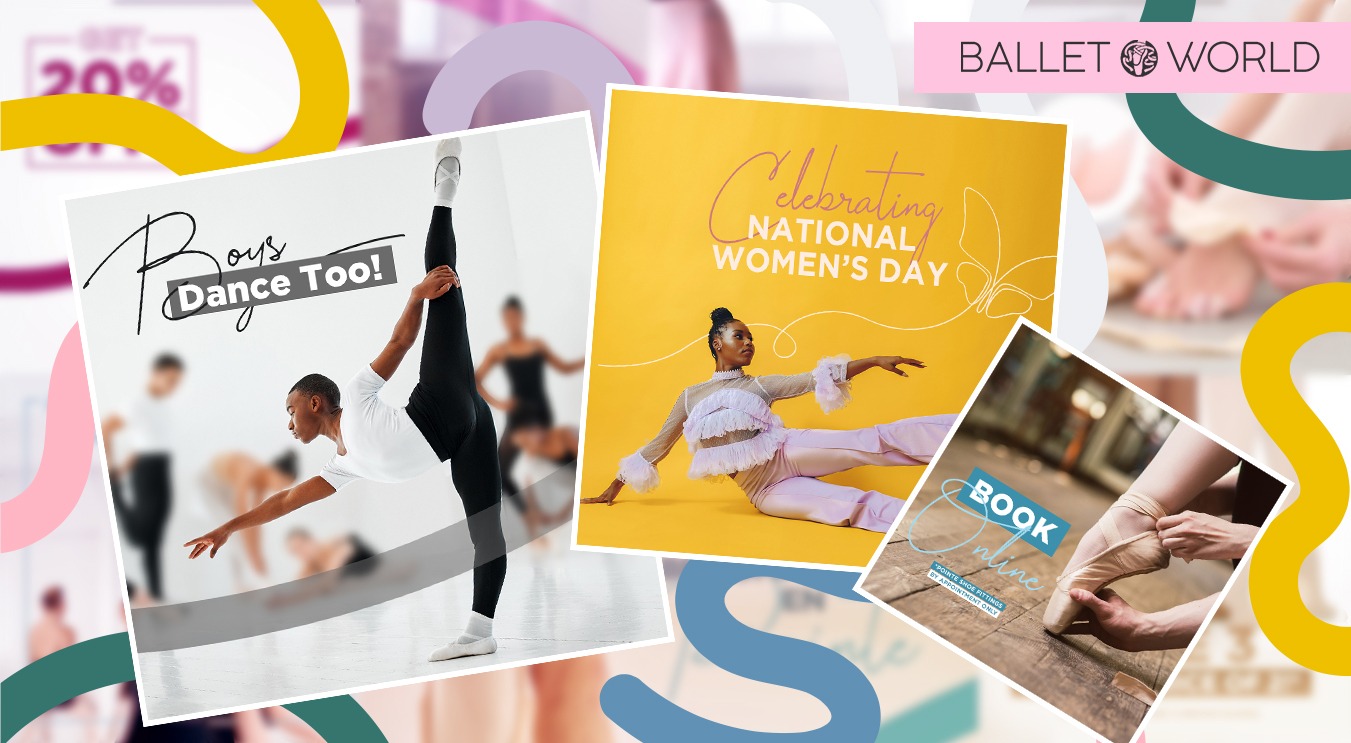
Developing a Comprehensive Marketing Plan
Marketing plan development, particularly in the realm of entertainment marketing and theatre promotion, entails several essential components for theatre marketing success. One of these components includes conducting thorough audience analysis and market research, which delve into your target audience’s preferences, demographics, and behavioural patterns. Understanding these factors is important for theatre marketing success because it enables you to tailor digital marketing strategies to meet the audience’s specific needs and desires.
At Arora Online, our digital marketing approach emphasises the importance of creating precise and well-defined entertainment marketing objectives that align with the SMART marketing criteria. The SMART criteria are a set of guidelines for setting effective goals. These include the following:
- Specific: Goals should be clear and well-defined.
- Measurable: Goals should be quantifiable to track progress.
- Achievable: Goals should be realistic and attainable.
- Relevant: Goals should align with the broader objectives and be meaningful.
- Time-bound: Goals should have a specific timeframe for completion.
Whether your focus is on enhancing ticket sales or bolstering brand awareness for sustainable event marketing, your marketing objectives should be well-defined because they ultimately serve as guiding beacons, directing your event marketing ROIs along the right path to theatre marketing success.
Effective budget allocation is another crucial aspect in the development of a successful marketing plan. This involves making thoughtful decisions about how resources are distributed among different marketing channels and strategies while considering the anticipated ROI. Remember: an integrated approach to event marketing ROI is vital for optimising resource utilisation and ensuring that your investments are channelled into strategies that yield the best results.
To foster a harmonious and powerful digital marketing strategy, adopting an integrated marketing approach to theatre advertising is essential – as previously explained, this strategy brings together a multitude of marketing tactics, all with the aim of conveying a consistent and unified message to your target audience. By utilising an integrated marketing approach, you can create a cohesive and memorable brand experience that resonates with your audience and leaves a lasting impression.
Developing a comprehensive marketing plan that prioritises an integrated marketing approach for a theatre promotion could involve various strategies and tactics that work together to promote the theatre’s productions and engage with its audience effectively. Here’s an example of such a marketing plan:
- Cross-Promotion: The theatre could partner with local businesses, such as restaurants or hotels, to offer special dining or accommodation packages for theatregoers. This not only enhances the overall experience but also promotes both the theatre and its partners.
- Digital & Social Media: The theatre can maintain an active online presence, including a well-designed website, social media profiles, and an email newsletter. These platforms can be used to share behind-the-scenes content, and upcoming show announcements, and engage with the audience.
- Content Marketing: Creating engaging content related to the productions or concerts, such as blog posts, video interviews with the cast and crew, and sneak peeks, can help build excitement and anticipation. This, in turn, can aid in ticket sales growth and reach by word of mouth.
- Community Engagement: Hosting events like workshops, interviews with the cast and crew, or educational programs for local theatre schools can build a stronger connection with the community. Remember: a sense of community and belonging is important in sustainable event marketing as it cultivates a loyal following.
- Email Marketing: Regularly sending newsletters with show updates, exclusive offers, and highlights of upcoming events can keep the audience informed and engaged. Audience engagement plays an important role in staying connected to the community and ensuring that events remain relevant.
- Print & Collateral Materials: Designing visually appealing brochures, posters, and website banners for each production can create a cohesive visual identity and enhance the audience’s experience. These materials can also be instrumental in guerilla marketing tactics, including QR codes for sneak peeks.
- Ticketing & Customer Relationship Management (CRM): Using a robust ticketing system and CRM software can help track customer preferences, purchasing habits, and demographics, allowing for more personalised event marketing. Remember: your website functions as your virtual storefront, so website optimisation is also key!
- Data & Audience Analysis: Regularly analysing KPIs and data on ticket sales, website traffic, and social media engagement is vital for refining marketing strategies and enhancing event marketing ROI. This data-driven approach, rooted in audience analysis, contributes to a more effective marketing plan.
- Influencer Marketing: Collaborating with content creators, influencers, and local businesses can provide mutually beneficial opportunities for exposure and community involvement. This synergy boosts exposure, engages the community, expands your brand’s reach, and enriches your presence and local connections.
Combining these marketing strategies for a seamless audience experience while maximising impact is crucial for theatres and production houses. Additionally, ongoing analysis using KPIs is vital for continuous digital marketing plan improvement – this data-driven approach refines strategies, optimises campaigns, and informs decisions, ensuring long-term success in the dynamic field of entertainment marketing and theatre promotion.
5 Common Mistakes in Entertainment Marketing to Avoid
Navigating the intricacies of marketing in the entertainment industry demands the development of a strategic marketing plan that steers clear of common mistakes. As the landscape of the entertainment industry continually evolves, there are critical missteps that can hinder event marketing success if left unaddressed. By understanding and sidestepping these pitfalls, digital marketing professionals in entertainment can position themselves for growth and lasting success in this ever-changing and competitive field.
- Neglecting Digital Presence: One of the most critical mistakes is underestimating the importance of establishing a robust online presence and the value of cross-promotion. Failing to do so can result in missed opportunities to connect and engage with your target audience, limiting your reach and visibility online.
- Resistance to Changing Trends: The entertainment industry is in a perpetual state of change, with emerging trends shaping and reshaping audience expectations. Resisting or neglecting these shifts can lead to stagnation and a loss of competitive edge. To stay relevant and meet the desires of your audience, embracing change is vital.
- Underestimating Audience Engagement: Effective engagement is not limited to showtime; it encompasses the entire journey, from anticipation before an event or concert to the experience itself and the post-event interactions. Ignoring audience engagement can hinder the development of a dedicated fan base and limit positive word-of-mouth.
- Data & Analytics Oversight: Overlooking the significance of evaluating the performance of entertainment marketing campaigns results in valuable resources being wasted and missed opportunities for improvement. In essence, the very foundation for optimising strategies lies in data analysis and the effective utilisation of analytics.
- Unclear Goals & KPIs: Setting clear, specific objectives and measurable key performance indicators (KPIs) is the cornerstone of effective event marketing strategies. Without these guiding metrics, evaluating the success of marketing efforts and making data-driven decisions in charting the path to success becomes a daunting challenge.
Understanding the significance of steering clear of typical errors, partnering with a digital marketing agency that specialises in event marketing and theatre promotion can act as a foundation for attaining success in theatre marketing. Collaborating with seasoned digital marketing experts, like our Arora Online team, ensures the establishment of a robust online presence and a cohesive integrated marketing strategy, fostering success in the realm of digital marketing for entertainment.
A seasoned digital marketing agency can help your business excel in remaining adaptable to entertainment industry trends and maintaining a consistent dedication to audience engagement. For example, our team is skilled in utilising data and analytics to ensure continuous improvement, and we can establish clear and unambiguous objectives for your integrated marketing strategy alongside key performance indicators. Our extensive expertise and strategies adeptly navigate the ever-shifting terrain of entertainment marketing.
Our Final Thoughts
There’s no denying that the success of theatres and entertainment events relies heavily on effective event marketing strategies. By now, it should be evident that acknowledging the competitive nature of the entertainment industry and staying ahead of the ever-evolving trends in digital marketing and entertainment are indispensable measures for ensuring sustainable event marketing and lasting achievement.
Cultivating an engaged and loyal audience is more than just promoting your shows; it’s about nurturing enduring connections with your spectators, and we believe that the time to act is now. Kickstart the implementation of these influential marketing strategies to ensure the continued success of your theatre or entertainment event, or reach out to us for expert guidance and advice on attaining excellence in theatre marketing.
